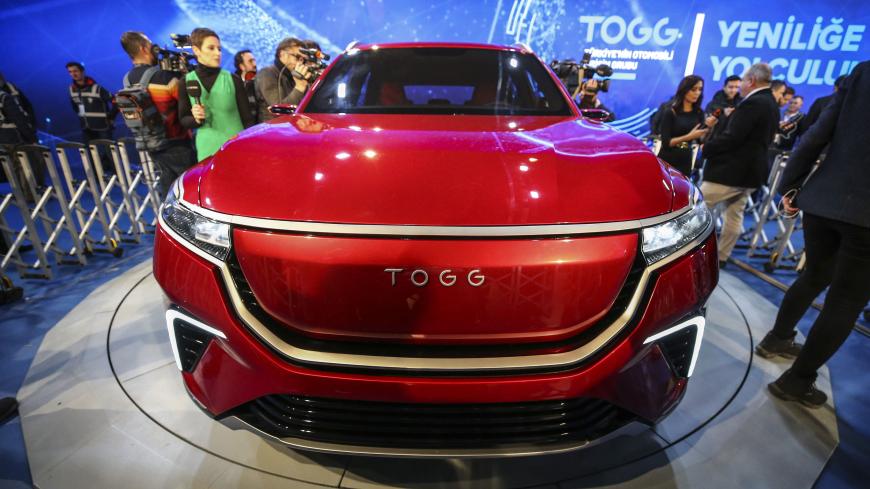A much-hyped project for a Turkish-brand electric car has dominated Turkey’s agenda in recent days, along with a similarly sensational plan for an artificial waterway as an alternative to the Bosphorus. The viability of the car project remains dubious despite the global automotive trend toward electrification, with many convinced that the ruling Justice and Development Party (AKP), under growing strain since electoral losses last year, is merely seeking political gain.
Helped by its geographic advantage, Turkey in recent decades has grown into a production hub for automotive giants, among them Ford, Mercedes, Renault, Toyota, Hyundai and Fiat. Turkey's production capacity has reached about 1.3 million cars per year, up from 300,000 in the 1990s, in particular attracting production destined for the European Union. The automotive industry stands today as the country’s top exporter, accounting for 18% of all exports, having outstripped the textiles and apparel sector, Turkey's traditional leader. Its export revenues amount to roughly $30 billion per year, including the contributions from side industries.



